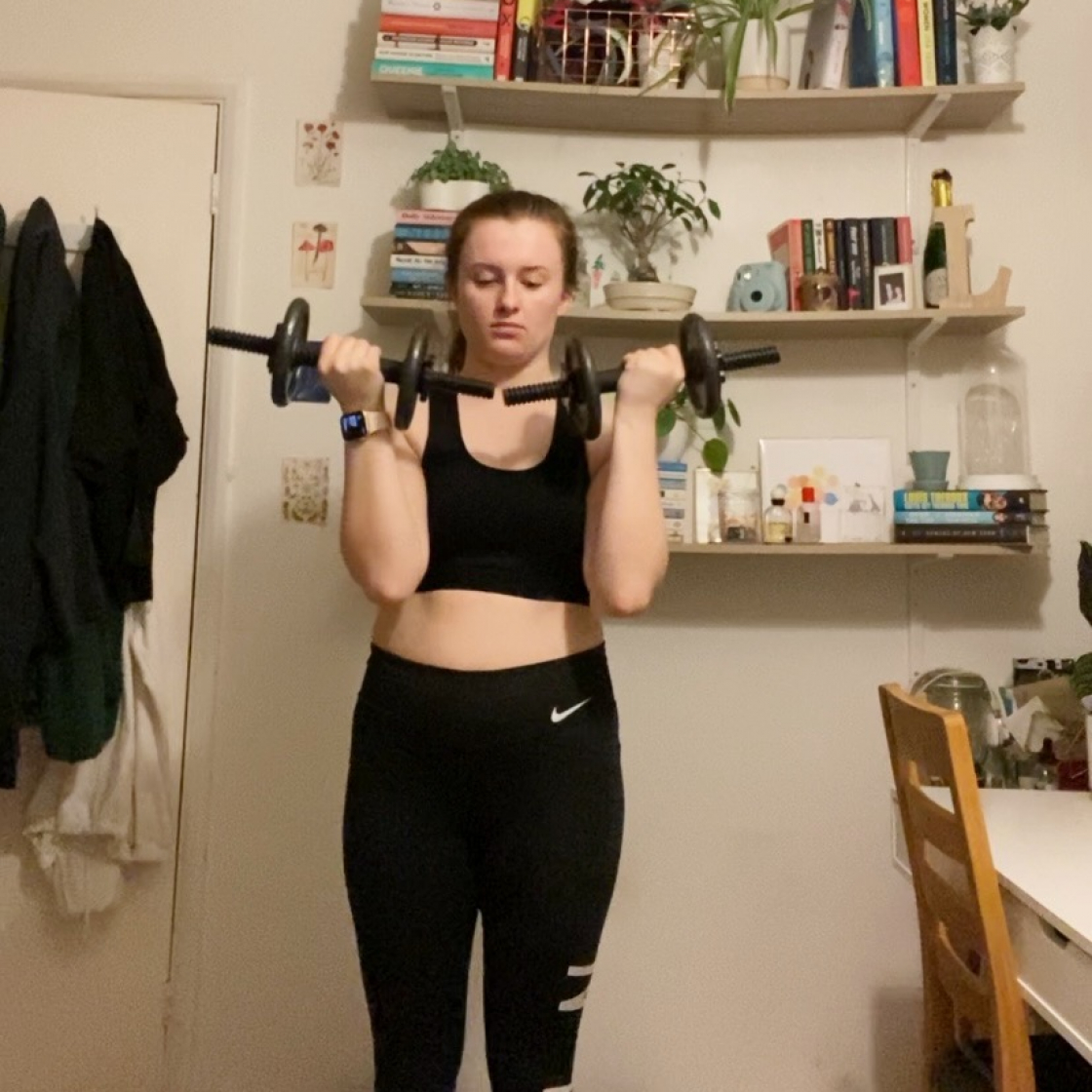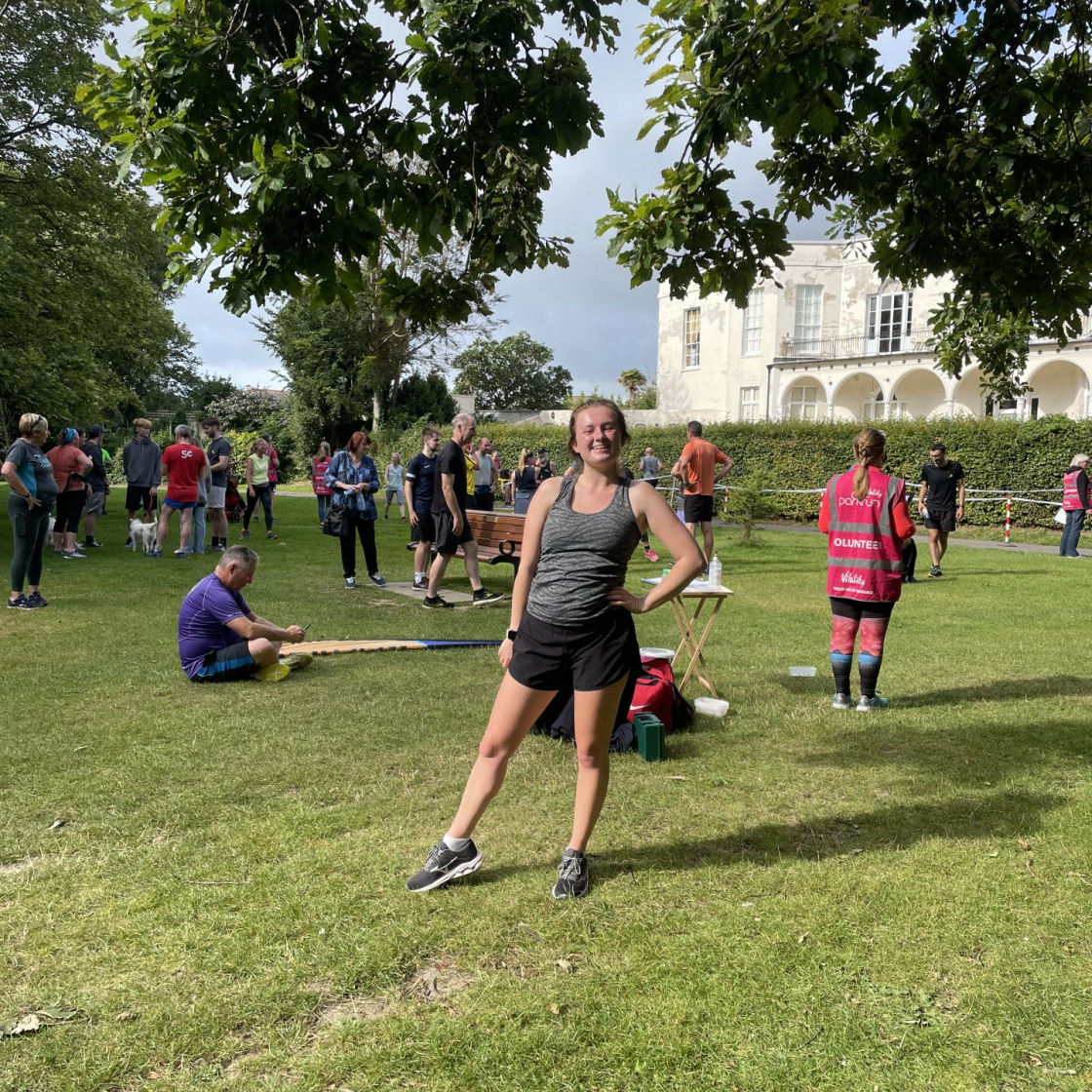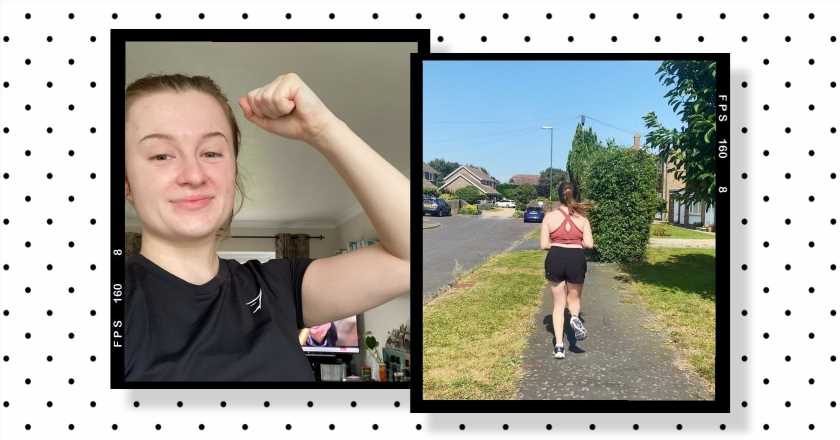Two years since she started working out regularly, Stylist’s digital writer Lauren Geall reflects on the lessons she’s learned – and shares her top tips for building an exercise habit that lasts.
Growing up, I never really excelled at physical activities. Compared to my sister, who loved getting muddy and played everything from hockey and football to rugby, I was definitely the ‘less active’ sibling – the one who preferred to attend drama classes and read books than run around a field in the freezing cold.
As I finished school, went through college and university and eventually got a job, this sense of indifference towards exercise was something that stayed with me, despite my best efforts to make working out a habit. In fact, it got to the point where I’d made a name for myself as someone who didn’t exercise at all.
You may also like
Strength training: “This 8-week workout plan took me from fitness beginner to a full press-up”
Things changed, however, during the UK’s third lockdown at the end of 2020. Like most people, I’d picked up a healthy walking habit during the first lockdown, but as time passed and the weather grew colder, I’d found it hard to keep it up. So, as winter got into full swing and the idea of staying home for even longer began to sink in, I began to worry about how much time I was spending sat down indoors.
Faced with this newfound realisation, I decided to try once again to build an exercise habit. However, instead of diving headfirst into cardio (the only form of exercise I’d ever really done) I decided to start with a short at-home strength training session courtesy of Stylist’s Strong Women Training Club. It wasn’t easy – as you might expect, I had absolutely zero strength in my arms and legs – but as the minutes passed by and my muscles burned, I actually began to enjoy myself.
It was then that I decided to commit myself to one of SWTC’s eight-week training plans, and to my surprise, I managed to complete the entire thing – only missing one or two sessions. So, after that, I decided to start running, too. And now, almost two years since I first cracked out some dumbbells, I’m proud to say that I’ve managed to work out consistently (I even have a gym membership) – and I feel all the better for it. At the start, I wouldn’t have believed you if you’d told me my body would be able to do some of the things it can do now.
Having once resigned myself to being the ‘non-sporty one’ for the rest of my life, I know how hard it can be to get into exercise for the first time – especially if, like me, you’re scared of embarrassing yourself or doing something wrong. When you’re known for being someone who doesn’t work out, it can be hard to carve out space for yourself in the (sometimes intimidating) world of fitness, but it certainly isn’t impossible.
With this in mind, I thought I’d reflect on some of the biggest lessons I’ve learned during my fitness journey – and share some of the tips I have for people who are just getting started, too. I’m no fitness expert, but these are some of the things that have helped me over the last year, and I hope they’ll help you, too.
1. Routine is essential
The biggest lesson I’ve learned – and my biggest tip for exercise newcomers – is how important it is to stick to a routine.
It may sound obvious, but creating a routine for yourself – whether that’s in terms of how often you work out or what time and day of the week you work out on – can help you to stay motivated and reach your goals more quickly and easily.
And while it’s OK to skip a day every now and then if you’re not feeling up to it, I’d recommend pushing yourself where you can. Even if you don’t feel up to it when you first start, chances are you’ll get into it by the time your warm-up is over.

2. It really does give you more energy
I was pleasantly surprised to find that many of the ‘benefits of exercise’ pieces I’d read over the years were actually telling the truth – not only can exercising regularly boost your mood, but it can also help you to feel more energised.
That’s not to say I don’t still feel tired from time to time, but it’s made a big difference to how awake and alert I feel during the day – even when I’m not eating as well as I should.
3. You won’t want to do it all the time
Just because I’ve been able to keep up an exercise routine for a year, doesn’t mean I haven’t dealt with days or weeks when I simply can’t be bothered.
Enjoying exercise doesn’t make it appealing 24/7 – and there will be days when the last thing you want to do is head to the gym or slip on a pair of running trainers.
You may also like
Couch to 5K: “The 3 things that helped a beginner learn to love running 5k”
But having one of these days does not mean you need to throw in the towel. Whether you decide to force yourself to give it a go, cut down the length of your workout or simply give that day’s work out a miss altogether, it’s OK to have days when you feel unmotivated or tired – just try to make sure those days don’t progress into weeks or months.
4. Running with others helps to keep you motivated
When the sun came out in March 2021 and I was growing tired of at-home strength and HIIT workouts, I started to get into running. After a couple of months of working out regularly, I found it much easier to get into – and two months down the line, I completed my first 5k.
Having cracked this all-important milestone, I decided to start attending my local parkrun event, and found that running with other people can make a big difference to the overall experience.
While I enjoyed those first few months of solo training, running alongside others can make a big difference to your motivation – especially on those days when you’re finding it hard to push through the pain. The community at these events also made the experience of running more fun – and having a PB to try and beat every week gave me that extra boost.
It can feel intimidating to run in front of other people first, but it’s definitely worth it. Even if you don’t fancy attending a parkrun event, why not get a few of your friends together and go for a jog? It’s a nice way to have fun and stay active all at once.

5. Short workouts count
It’s better to do a short workout than nothing at all, so don’t shy away from doing a quick 10-minute YouTube video if that’s all you feel up to some days.
Not only can a short workout still be beneficial, but once you get started, you’ll often find that you want to keep going for longer after all.
6. Investing in nice activewear can make a big difference
While nice activewear isn’t essential for getting into exercise, having a set you feel great in can certainly make the idea of working out feel more appealing and even help you to feel more confident.
After a couple of months spent working out in some old Nike leggings and the one sports bra I owned, I decided to treat myself to an incredible Nimble set – and it made the experience of working out feel a whole lot more fun.
You may also like
Picture of Health: does dressing well for the gym make you work out better?
Don’t just take my word for it, either – as Stylist’s digital fashion editor Naomi May found out, dressing nice for the gym really can make a difference to your workout.
7. You don’t need a gym membership to get started
The idea of spending money on a gym membership always made the idea of working out sound less than appealing – but you really don’t need one to get started.
There are so many brilliant at-home workouts available these days (including on Stylist’s very own Strong Women Training Club) that you can start to build a routine from the comfort of your living room before deciding whether or not to spend any money – that is, if you ever decide to join.
If you want to check out the training plans that Lauren tried, visit the Strong Women Training Club
Images: Lauren Geall
Source: Read Full Article
